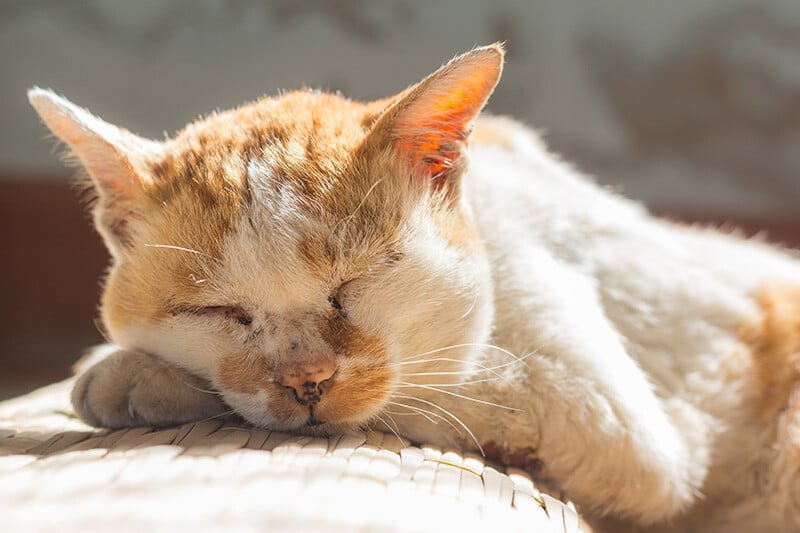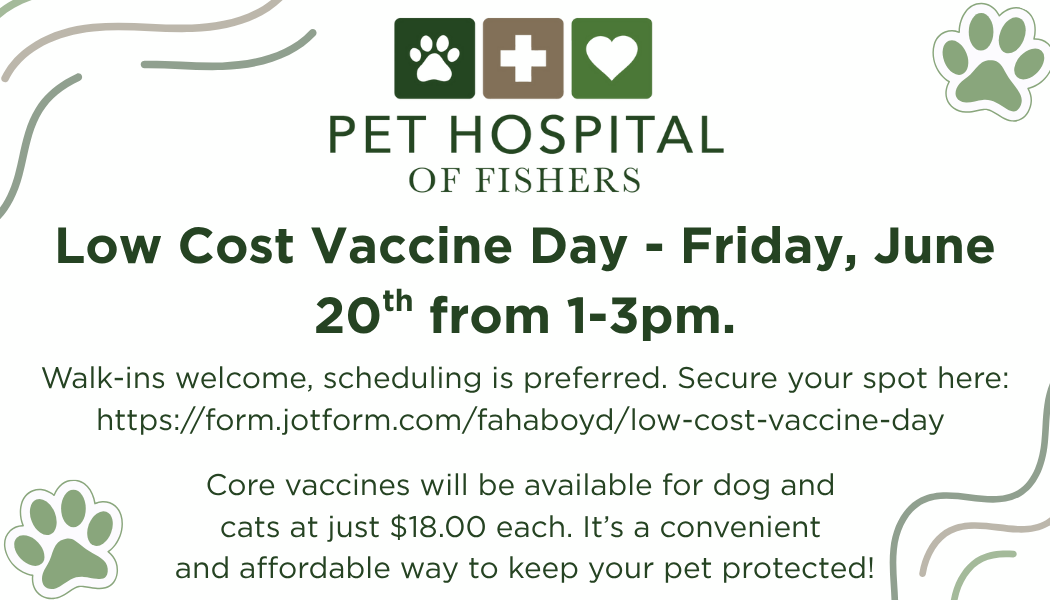Now Open and Accepting New Patients!
Senior Pet Care
.jpg?width=1280&height=1044&name=vine-vet-senior-animal-care-banner%20(1).jpg)
Understanding Senior Pets
What Is Considered a Senior Pet?
Your pet’s senior status depends on their size, breed, and genetics. For example, smaller dogs often start showing signs of aging around 8-10 years old, while larger breeds age a bit faster and may be considered seniors by 6 or 7. Cats, on the other hand, typically enter their golden years around age 10. Every pet is different, so their aging process can vary. Some might act like puppies or kittens well into their senior years, while others slow down earlier.
Common Signs of Aging in Pets
As your pet gets older, you may notice they’re not quite as spry as they used to be. Maybe they’re slower going up the stairs or taking more naps throughout the day. Some pets might also show subtle changes in their behavior—like becoming more easily confused, sleeping differently, or even seeming a bit grouchy at times. Physically, you might spot graying fur around their face or notice they’re having trouble seeing or hearing as well as before. These changes are a normal part of aging, but they’re also signs that your furry friend might need a little extra care and attention to stay comfortable and thrive.

Caring for an Elderly Dog
As dogs enter their senior years, they require special attention and care to maintain their quality of life. Regular veterinary check-ups become increasingly important with age to monitor their health and catch any age-related issues early. These visits allow your vet to assess your dog's overall condition, adjust medications if needed, and provide guidance on nutrition and exercise tailored to your pet's changing needs.
At home, focus on creating a comfortable environment for your elderly dog. Provide soft bedding in easily accessible areas, consider using ramps or stairs to help them navigate furniture, and ensure they have non-slip surfaces to walk on. Most importantly, shower your aging companion with love and patience as they navigate this stage of life.
Essential Veterinary Care for Senior Pets
Regular Wellness Exams
Regular wellness exams are essential for senior pets, and we recommend bringing them in at least twice a year. Older pets are more prone to illnesses that can develop quickly, so more frequent check-ups allow us to catch potential issues early. These visits typically include bloodwork, urinalysis, and diagnostic imaging like X-rays or ultrasounds to monitor internal health, ensuring we stay ahead of common problems.Vaccinations and Preventative Care
Your pet’s vaccination schedules may need to be adjusted based on their age, lifestyle, and overall health. Keeping up with vaccinations and parasite prevention—such as flea, tick, and heartworm treatments—remains critical to protecting your senior pet from preventable diseases. A tailored approach ensures they stay protected without unnecessary strain on their immune system.Dental Care
Good dental health is key to your senior pet’s overall well-being, as untreated dental issues can lead to pain, difficulty eating, and even more serious problems like heart or kidney disease. At Pet Hospital of Fishers, we offer professional cleanings, extractions, and other dental care services to keep your pet’s mouth healthy and comfortable. Regular dental care can greatly improve their quality of life as they age.
Common Health Concerns in Senior Pets
Arthritis and Mobility Issues
Arthritis and joint pain are common in senior pets, often causing stiffness, limping, or difficulty with stairs and movement. Pain management medications, joint supplements, and even physical therapy can help improve mobility and keep them comfortable.
Weight Management
Obesity can put extra strain on your senior pet’s joints and increase the risk of conditions like diabetes or heart disease. Nutritional counseling and customized diet plans can help maintain a healthy weight and improve their overall quality of life.
Chronic Conditions
Senior pets are more susceptible to chronic issues like diabetes, kidney disease, and heart problems, which can significantly impact their health. Regular monitoring and early treatment plans are key to managing these conditions and helping your pet live longer, healthier years.
Cognitive Dysfunction Syndrome (Pet Dementia)
Senior pets with cognitive dysfunction may show signs like confusion, restlessness, or changes in sleep patterns. Providing structure, mental stimulation, and a calm environment can help ease their symptoms and support their emotional well-being.
For More Information:

Nutrition and Exercise for Senior Pets
Throughout your pet's life, their nutrition and exercise needs and capabilities will change. Aging pets often benefit from diets rich in higher-quality protein, joint-supporting supplements, and tailored calorie levels to maintain a healthy weight. Our team will work with you to develop a personalized nutrition plan that supports their specific health needs. In addition to proper nutrition, we can recommend safe, low-impact exercises to help your pet stay active, maintain mobility, and build strength. Whether it’s short walks, gentle playtime, or stretching routines designed to keep them comfortable and engaged. Together, we’ll ensure your pet thrives in their golden years.

How to Make Your Senior Pet Comfortable at Home
Making simple modifications to your home can make a big difference in helping your senior pet feel safe, comfortable, and independent as they age. Pet ramps or stairs can give them easier access to their favorite spots, like the bed or sofa, while orthopedic beds provide much-needed joint support for restful sleep. Keeping their minds engaged with interactive toys and activities is equally important, as it helps prevent boredom and cognitive decline. A calm, consistent routine can also reduce anxiety and create a sense of security. For pets with reduced vision or hearing, clear pathways, secure spaces, and extra safety measures, like nightlights or tactile cues, can help them navigate their surroundings with confidence.
Looking for End-of-Life Services for Cats in Pennsylvania?


Looking for End-of-Life Services for Cats in Pennsylvania?
At Leo’s Pet Care, we aim to keep your pets healthy. We recommend routine pet examinations, vaccinations, and more to give your pets the best chance at a healthy and long life.
Keep Your Senior Pet Thriving: Schedule an Appointment Today
Give your senior pet the expert care they deserve at Pet Hospital of Fishers. Our team specializes in creating personalized treatment plans tailored to your pet’s unique needs, ensuring they stay happy and healthy in their golden years. Schedule an appointment today and experience our warm, welcoming environment designed to support both you and your beloved companion!
Thank You For Your Kind Words!

